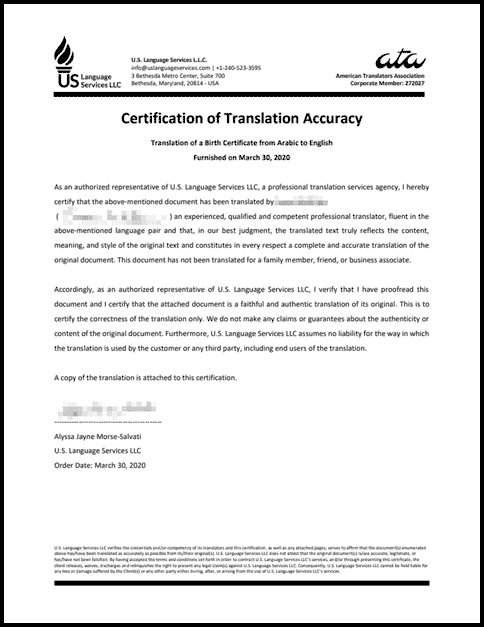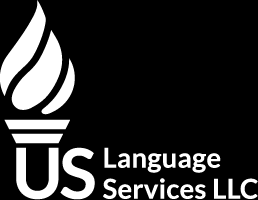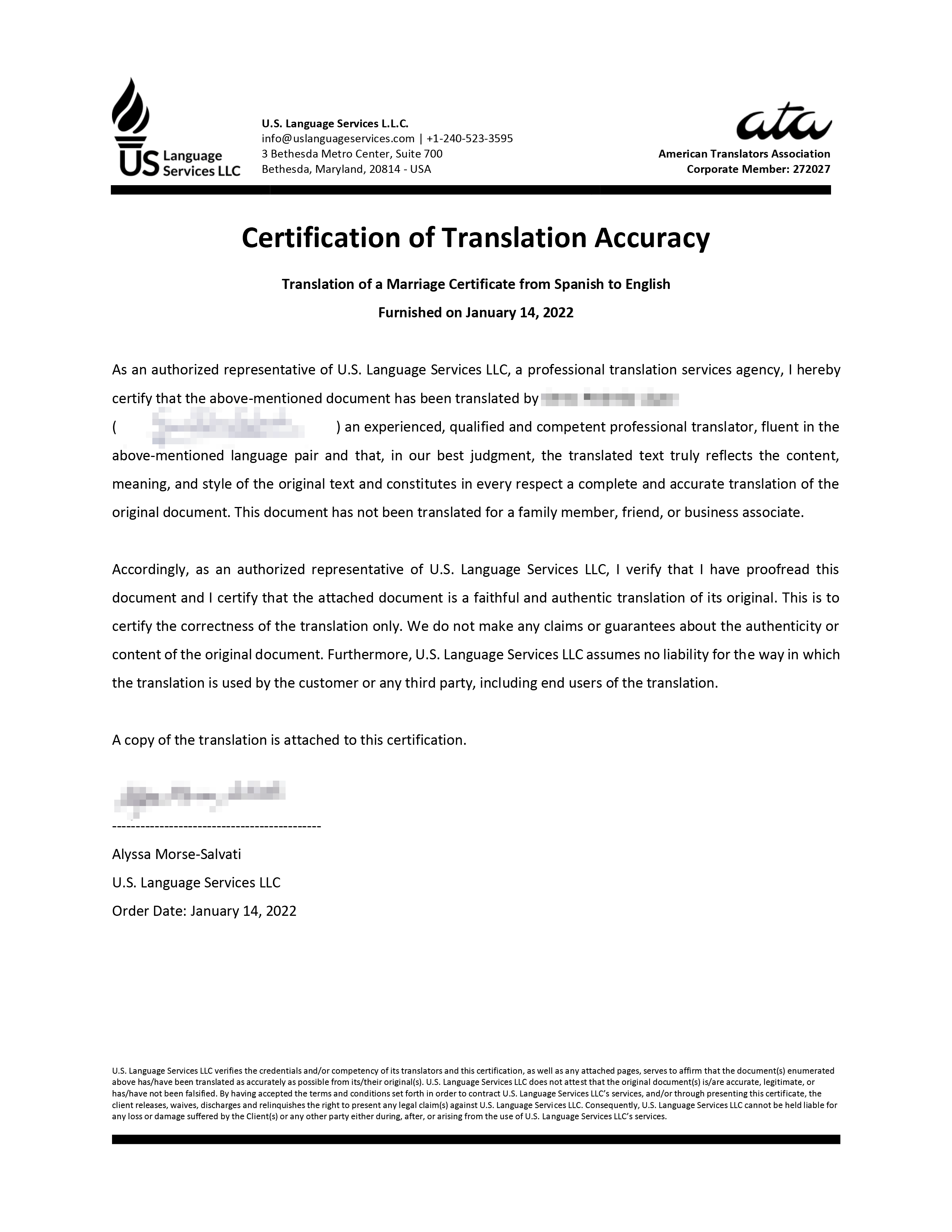How to Work in the U.S. As a Foreign-Educated Audiologist

Working as an audiologist in the United States is rewarding, and the benefits of this career include stability and decent pay. The U.S. Bureau of Labor Statistics reports that audiologists make an average annual salary of $58,920 to $120,210, with median pay falling at $78,950 per year.
If you are interested in moving your audiology practice to the United States, our guide helps you understand this process and answers important questions such as:
- What Is the Process for Working in the U.S. As a Foreign-Educated Audiologist?
- How Much Does It Cost to Work as a Foreign-Educated Audiologist in the U.S.?
- How Long Does It Take io Work as a Foreign-Educated Audiologist in the U.S.?
- Are There Any Restrictions to Working as a Foreign-Educated Audiologist in the U.S.?
- What Are the State-Specific Requirements for Foreign-Educated Audiologists?
- What Are the Immigration Requirements for Foreign-Educated Audiologists?
- Where Can I Get a Certified Translation?
What Is the Process for Working in the U.S. As a Foreign-Educated Audiologist?
The process for working in the U.S. As a foreign-educated audiologist includes the following steps:
- Obtaining your audiologist education is the first step in this process. Every state licensure board for audiology will require that you have obtained an undergraduate degree and either a master’s or a doctoral degree in audiology; you will need to consult the state audiology licensing board for the specific education requirements you may need to obtain to be recognized by that state. Along with your education, you will need to have a least a year of supervised clinical experience practicing audiology or working as an audiology professional in your home country. The length of this experience requirement may also vary state by state.
- After you’ve met all of the education and experience requirements of a U.S. audiologist, you will need to obtain a credential evaluation from a reputable credential evaluation service. This step allows your foreign audiology education to be converted to the U.S. equivalent, so you can be sure that you meet all education requirements or fulfill any remaining credits and experience-related steps you need. You may want to consider utilizing a credential evaluation service that is a member of the National Association of Credential Evaluation Services (NACES) or the Association of International Credential Evaluators (AICE). Credential evaluation companies that join either of these organizations are committed to upholding ethical practices and ensuring the most accurate conversion of your foreign educational materials possible.


Make sure you obtain a certified translation of all of your important academic documents and documents detailing audiology experience, as documents in English are required for most credential evaluations and further down the line when you start applying for state licensure as an audiologist.
Certification of Translation Accuracy Sample
Order Your Certified Translation
- Once you’ve obtained credential evaluations and all your certified translations, you will need to take the Praxis exam. The Praxis exam for audiology is required by almost every state audiology licensing board, but make sure to double-check with the state audiology board of the jurisdiction you wish to work in for specifics about passing scores and other examination information. The Praxis exam for audiology is given internationally and you will need to log in to the test’s registration system to find the testing facility nearest to your location. Contact the Praxis program directly for more assistance finding a testing center near you.

- An optional step in the process of becoming a foreign-educated audiologist working in the U.S. is obtaining a Certificate of Clinical Competence in the field of audiology. This certificate is administered by the American Speech-Language-Hearing Association (ASHA) and is an internationally recognized certificate. Obtaining this certificate proves to both U.S.-based employers and state audiology licensing boards that you are committed to the highest quality preparation and training possible to work in this field, and that you are prepared to learn and work with advanced techniques in the field of audiology. If you are trying to improve your chances of finding a U.S.-based employer, this certification can be a valuable thing to have, but whether you obtain it or not depends on your personal preference and professional circumstances.

- One of the most important steps in immigrating to the United States to practice as an audiologist is obtaining state licensure. You will need licensure in the state you wish to move to if you want to legally practice your profession in that jurisdiction. Because licensure is handled on a state-by-state basis, you will need to check with the specific audiology licensing board in the state you wish to work in. However, you should be prepared to show evidence of your audiology education, including credential evaluations and certified translations, your Praxis audiology exam test scores, clinical and work experience information, and any certifications you have obtained. Some states may also require that applicants from countries where English isn’t a national language submit test scores from either the Test of English as a Foreign Language (TOEFL) or the International English Language Testing System (IELTS).

- As you obtain licensure in your state of choice and start sending out applications to U.S.-based employers, you will also need to look into obtaining a U.S. employment visa. The most common visa for audiologists to obtain is the H-1B visa for specialty occupations and the United States Citizenship and Immigration Services (USCIS) also requires audiologists to obtain a health care worker certification. You will need state licensure and a U.S.-based employer in that state to sponsor you as part of your visa application.
Make sure that you understand each step associated with this process and note that you can complete a few steps of this process at the same time, depending on your situation and preferred timeline.If you are confused about any part of this process, reach out to the organization or agency overseeing the step for more detailed information that applies to your specific situation.
How Much Does It Cost to Work as a Foreign-Educated Audiologist in the U.S.?
Not including the cost of obtaining your audiology education, the cost of becoming a foreign-educated audiologist in the U.S. ranges from several hundred to a few thousand dollars. Taking the Praxis exam for audiology costs $146, not including study materials, and credential evaluation services and certified translations for your foreign credentials can cost a few hundred dollars. The cost of an H-1B visa application is $460 and you might need to pay more depending on your situation and other application costs; a consultation with a U.S. immigration lawyer about the best visa type for you might also add an additional cost. If you need to take either the TOEFL or IELTS, this can cost a few hundred dollars, not including study materials, and state audiology licensing comes with a fee that’s around a few hundred dollars depending on the state where you are applying for licensure.
How Long Does It Take To Work as a Foreign-Educated Audiologist in the U.S.?
The process can be a long one, especially if you count the time it takes to obtain your education as an audiologist and at least a year’s worth of clinical experience. Once you’ve met these education requirements, it can take several months to a year to study for and complete the Praxis exam for audiology. Additional time is necessary if you need to pass the TOEFL or IELTS. Obtaining certifications through ASHA and state licensing might take several months, as will the process of finding a U.S.-based employer willing to sponsor your visa application. Once you submit your visa application, it can take between 2 and 13 months to be approved. Overall, you can expect it to take between 1 and 3 years to work as a foreign-educated audiologist in the U.S., not including the time it takes to fully obtain your audiology education.
Are There Any Restrictions to Working as a Foreign-Educated Audiologist in the U.S.?
Once you have met all education and experience requirements for working as an audiologist in the United States, passed the Praxis exam, and obtained your state audiology license, you will not have any restrictions. Make sure that you keep up with state licensing requirements and any applicable visa or employment requirements to ensure that you keep your audiology practice in the U.S. in good standing.
What Are the State-Specific Requirements for Foreign-Educated Audiologists?
Audiology licensing in the United States is handled at the state level, and you will need to check the specifics of obtaining and maintaining your audiology license through the state audiology board of the jurisdiction you wish to work in. However, most state-specific requirements for foreign-educated audiologists are similar, and you will most likely be required to submit credential evaluations for your foreign credentials, original academic and work experience information with certified translations, and the Praxis exam for audiology scores. Most states will require you to pay a license application fee, and many states will ask that you keep up with continuing education requirements to maintain your license over time.
What Are the Immigration Requirements for Foreign-Educated Audiologists?
Foreign-educated audiologists will need to obtain an employment-based visa if they wish to legally practice audiology in the United States. Before your visa application can be fully filled out and submitted, you will need to meet all the requirements for state licensure in the state you wish to work in, obtain licensure, and find a U.S.-based employer to sponsor you. Additionally, the USCIS requires audiologists to obtain a health care worker certification. The visa type that most audiologists will need to apply for is the H-1B visa for specialty occupations, but if you have questions about your immigration situation or need advice on the correct visa type, you will need to speak with a U.S. immigration legal professional.
Where Can I Get a Certified Translation?
Certified translations are an essential part of the process when it comes to working in the U.S. As a foreign-educated audiologist. Documents like your academic transcripts, degrees, certifications, and licenses will all need to be officially translated into English so credential evaluation services and state audiology licensing boards can properly review them. Visit our online store to obtain certified translations of important documents such as:
- Diplomas
- Academic transcripts
- Business licenses and certifications
- Resumes and employment records
- Birth certificates
Guaranteed Acceptance
All our certified to English translations are accepted by the USCIS. Our translations follow the guidelines established by the USCIS and are also accepted by educational institutions.
Most Requested Documents
FAQs
You can order most translations 24 hours a day, 7 days a week through our online store. For large projects (more than 20,000 words or 50 pages), please request a quote.





